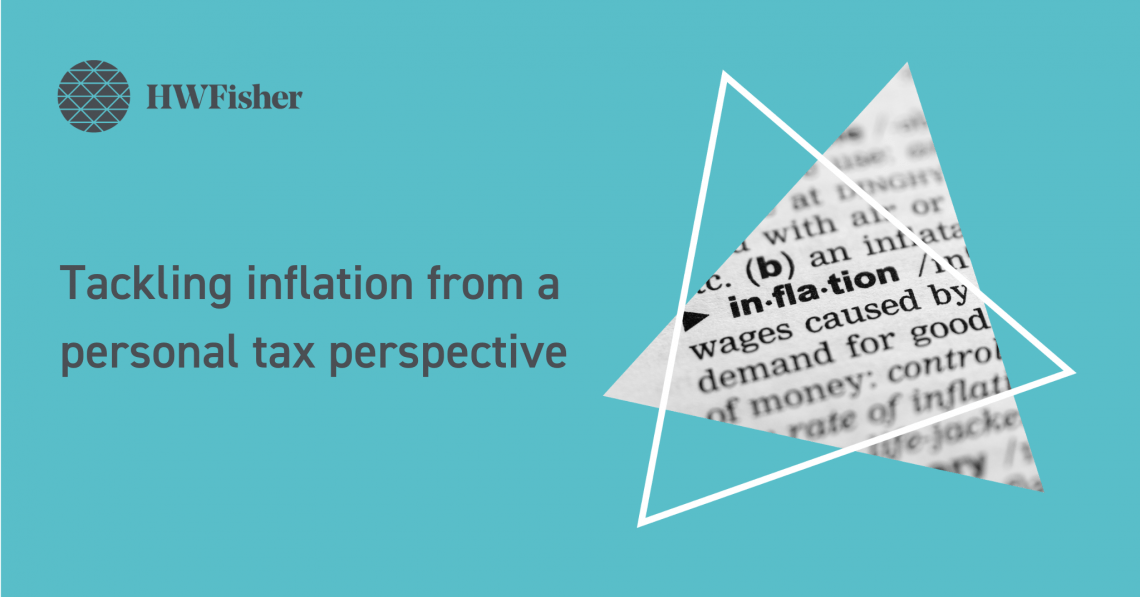
Article written by Daniel Tomassen, Senior Manager of the Private Client Department.
The Office for National Statistics put the rate of inflation in the UK at 10% in the 12 months to July. This is predicted to hit 20% by early next year, and both businesses and individuals are feeling the pinch.
There are a number of tactics available to individual taxpayers to cushion the blow from ever increasing living costs.
In a high-level inflationary environment, taxpayers should be looking to defer tax liabilities as the debt will be worth less due to the impact of inflation eroding its value. For example, if it is possible to defer a tax point arising to a future year such as taking a dividend in the next tax year, then the tax liability will not be due for a further 12 months.
In addition, taxpayers should endeavour to accelerate (where possible) claims for tax reliefs as soon as possible. This means the individual will receive the tax repayment sooner rather than later, when the value of the repayment has not been eroded by inflation.
The options listed below are non-exhaustive.
Carrying back charitable donations
Over 60% of the UK population donate to charities annually.
The tax legislation provides additional tax relief for higher rate taxpayers for donations made in the tax year, by extending your basic rate tax band meaning more income is taxed at 20%.
In addition to claim donations made during the tax year, it is possible to carry back donations made in the following year (before 31 January). By carrying back your donations, you are receiving the tax relief 12 months earlier.
Reviewing Payments on Account
Individuals who receive the majority of their income gross may be required to make payments on account towards their tax liability for the following tax year.
Many of these individuals have fluctuating levels of income year on year, which may mean there is scope to reduce their payments on account if they anticipate their income is likely to fall in the following year.
Liaising with their accountants to review the anticipated future tax liabilities will ensure that they do not unnecessarily pay too much tax in advance and therefore free up funds now to maintain their lifestyle.
Enterprise Investment Scheme (EIS)
To promote investment in small high-risk businesses, the UK government provides investors with a 30% income tax reducer for investments made in qualifying EIS companies.
For example, if you invest £100 in a qualifying company, HMRC will reduce your tax bill by £30.
This relief is usually available for the tax year in which the investment is made. However, it is also possible to carry-back the tax relief to the previous tax year e.g. if you made an investment in the year ended 5 April 2023 you could carry back the relief to the year ended 5 April 2022.
The advantage of carrying back the claim is that you are ensuring you relief the sooner rather than later.
Summary
In order to ensure your tax affairs are minimising the impact of inflation, it is important to liaise with your accountants who can help you identify potential tax relief accelerations and tax liaibility deferrals. For more information, and to discuss your specific circumstances, please get in touch.
If you would like to discuss your specific circumstances, please do get in touch.
We’d love to hear from you. To book an appointment or to find out more about our services: